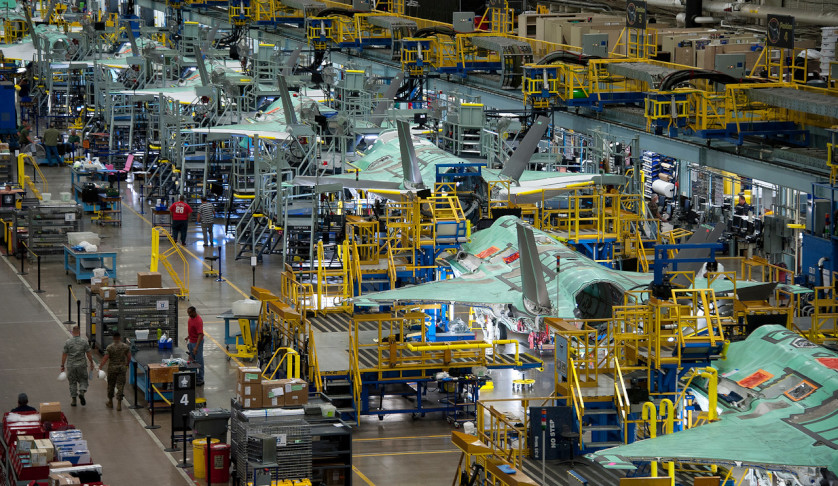Defence Industry Minister Melissa Price has announced Melbourne-based RUAG Australia has become the latest recipient of the government’s Defence Global Competitiveness Grants to support the company’s competitiveness in the global F-35 Joint Strike Fighter jet supply chain.
To continue reading the rest of this article, please log in.
Create free account to get unlimited news articles and more!
RUAG Australia will use their $150,000 grant to digitise manufacturing planning and scheduling functions, expanding RUAG’s capacity to export aerospace components.
The Defence Global Competitiveness Grants are designed to help Australian businesses invest in projects that build their defence export capability.
A grant of $15,000 to $150,000 for up to half the cost of investing in projects that build export capability to create a stronger, more sustainable and globally competitive Australian defence industry.
Defence Industry Minister Melissa Price said, “This program is part of the Morrison government’s commitment to build a stronger and globally competitive Australian defence industry.”
The maximum grant period is 18 months.
“Over 26 Australian small businesses have benefited from an investment worth over $3.4 million through this grants program so far,” Minister Price added.
In order to be eligible for the government’s Defence Global Competitiveness Grant, companies must be a small-to-medium sized businesses with an Australian business number (ABN).
The business must be either:
- a company incorporated in Australia; and
- an incorporated trustee on behalf of a trust.
Successful companies will need to match the grant amount dollar for dollar.
Project activities can include:
- buying, leasing, constructing, installing or commissioning of capital equipment including specialist software to enhance cyber security;
- design, engineering and commissioning activities; and
- workforce training and accreditations.
The Defence export strategy defines Australian defence exports as "any defence-specific or dual-use goods or services exported by Australian defence industry, including as part of a supply chain, that are intended for a defence or national security end-user".
The Lockheed Martin F-35 Joint Strike Fighter is billed as a catalyst for the fifth-generation revolution, changing the face and capability of the Royal Australian Air Force and the wider Australian Defence Force.
For the RAAF, the F-35A's combination of full-spectrum low-observable stealth coatings and materials, advanced radar-dispersing shaping, network-centric sensor and communications suites – combined with a lethal strike capability – means the aircraft will be the ultimate force-multiplying, air-combat platform.
Ten nations are currently flying F-35s, including the US, UK, Italy, Norway, Israel and Japan. The first of Australia’s F-35A aircraft are now based on home soil after a period of training and development at Luke Air Force Base in Arizona, plus an epic Pacific Ocean crossing in December 2018.
More than 340 F-35s are operating today with partner nations, more than 700 pilots and 6,500 maintainers have been trained, and the F-35 fleet has surpassed more than 170,000 cumulative flight hours.
Over the coming years, Australia will purchase 72 of the advanced fifth-generation fighter aircraft as part of the $17 billion AIR 6000 Phase 2A/B program – which is aimed at replacing the ageing F/A-18A/B Classic Hornets that have been in service with the RAAF since 1985.

 Login
Login







